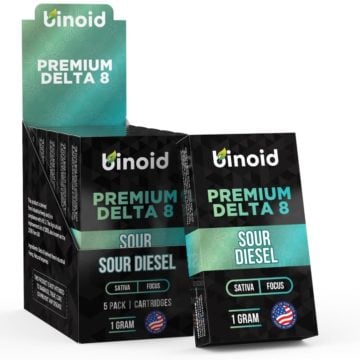
Is Weed Delivery Legal in Colorado
In the ever-evolving landscape of cannabis legislation, understanding the intricacies of marijuana delivery in Colorado is crucial for both residents and visitors. The Centennial State has played a pioneering role in marijuana legalization in the United States, making it a focal point for discussions surrounding the legality of weed delivery. This article delves into the intricacies of Colorado’s marijuana laws, from medical marijuana to recreational cannabis, while also exploring the regulations that govern delivery services in the state.
This post is intended as information and for general knowledge only. It is not a substitute for medical advice, diagnosis, or treatment. It is recommended that you talk to a healthcare professional about this before introducing cannabinoids into your daily routine (especially if you have been diagnosed with any medical conditions or are under any medication). It is not recommended to drive or operate any machinery when using cannabis- or hemp-derived products. Use responsibly!
Colorado’s Legalization of Marijuana
Colorado’s journey toward marijuana legalization is marked by significant milestones. One of the key moments in this history was the passage of Amendment 64 in 2012. This constitutional amendment allowed for the recreational use and sale of marijuana for adults 21 and older. Voter approval of Amendment 64 brought about sweeping changes in the state’s marijuana laws.
Currently, Colorado permits both recreational and medical marijuana use. Individuals aged 21 and older can legally possess up to one ounce of marijuana and cultivate a limited number of plants for personal use. Public consumption of marijuana remains prohibited, with restrictions similar to those governing alcohol use.
The State’s Regulatory Framework
The regulation of marijuana in Colorado is overseen by various agencies, with the Colorado Department of Revenue (DOR) and the Marijuana Enforcement Division (MED) playing pivotal roles. The DOR administers taxes related to marijuana sales, while the MED regulates the marijuana industry, from licensing to enforcement.
Local governments also have a say in regulating marijuana delivery within their jurisdictions. Many cities and counties have enacted their own ordinances, impacting the availability and operation of marijuana delivery services. Thus, it’s essential to stay informed about local regulations when considering cannabis delivery.
Medical Marijuana Delivery Laws
Colorado has long recognized the medical benefits of marijuana, allowing qualified patients to access medical cannabis. To be eligible, individuals must have specific medical conditions and register with the state as medical marijuana patients. These patients can obtain medical marijuana from dispensaries or, in some cases, through delivery services.
Medical marijuana delivery is typically conducted by dispensaries or independent caregivers who serve registered patients. Caregivers are required to comply with strict identification, transportation, and record-keeping obligations to ensure the safety and integrity of the medical marijuana program.
Recreational Marijuana Delivery Laws

Recreational marijuana in Colorado has gained immense popularity since its legalization. Consumers aged 21 and older can purchase marijuana products from licensed dispensaries. While retail marijuana sales thrive, some individuals prefer the convenience of cannabis delivery.
Recreational marijuana delivery is governed by separate regulations. Businesses seeking to offer this service must obtain the necessary licenses and adhere to compliance requirements. These rules differ from those for medical marijuana delivery, impacting licensing, purchase limits, and taxation.
Licensed Weed Delivery Services
Obtaining a delivery license in Colorado involves an application process and associated fees. Different types of businesses are eligible to provide marijuana delivery services, including dispensaries, couriers, and social equity applicants. However, all must meet stringent requirements and restrictions.
Safety measures are paramount in the delivery service industry. Employee training and vehicle regulations ensure that the transportation of cannabis products is conducted responsibly. The security of both the delivery personnel and the products is a top priority.
Delivery Service Operation Rules
Delivery services in Colorado are subject to various operational rules. These include delivery hours and limits to prevent potential misuse. Strict security and tracking requirements are in place to safeguard against theft and unauthorized access.
Inventory tracking, GPS technology, and surveillance systems play a crucial role in monitoring the movement of cannabis products during deliveries. Additionally, packaging and labeling standards must be followed, ensuring that products are safely stored and clearly labeled, as required by state law.
Geographical Restrictions
The ability to access marijuana delivery services can be influenced by geographical factors. Municipalities in Colorado have the option to opt out of allowing delivery services within their boundaries. This means that some areas may prohibit marijuana delivery altogether.
Understanding where weed delivery is allowed and prohibited within the state is essential for consumers and businesses alike. Geographical considerations can significantly impact the accessibility of marijuana delivery services, with rural and urban areas experiencing varying levels of availability.
Consumer Rights and Responsibilities
Colorado places a strong emphasis on consumer rights and responsibilities in marijuana transactions. To purchase marijuana products, consumers must provide valid identification to confirm their age. Age verification and ID checks are integral to ensuring that only eligible individuals access cannabis.
Safeguarding consumer rights extends to issues of product quality and safety. Colorado enforces strict standards for packaging and labeling, including childproof packaging requirements. Consumers must also take responsibility for secure storage and responsible consumption to prevent accidental ingestion by children or unauthorized individuals.
Challenges and Controversies
The marijuana delivery industry in Colorado is not without its challenges and controversies. Banking issues persist due to federal restrictions on cannabis, making it difficult for businesses to operate smoothly. Competition among dispensaries and delivery services is fierce, with players vying for market share.
Controversies also surround social equity concerns and public safety debates. Ensuring that marginalized communities have equitable access to opportunities in the cannabis industry remains a complex issue. Furthermore, debates about public safety and the potential for increased impaired driving incidents due to marijuana consumption continue tobe discussed.
Conclusion
In conclusion, understanding the legality of weed delivery in Colorado is essential in a state with a rich history of marijuana legalization. Colorado has established a robust regulatory framework that governs both medical and recreational marijuana delivery services. It is a model for how other states can approach marijuana regulation while addressing the unique challenges and controversies that come with it. As the marijuana industry continues to evolve, staying informed about the latest news and developments is crucial for all stakeholders in the cannabis business.

















